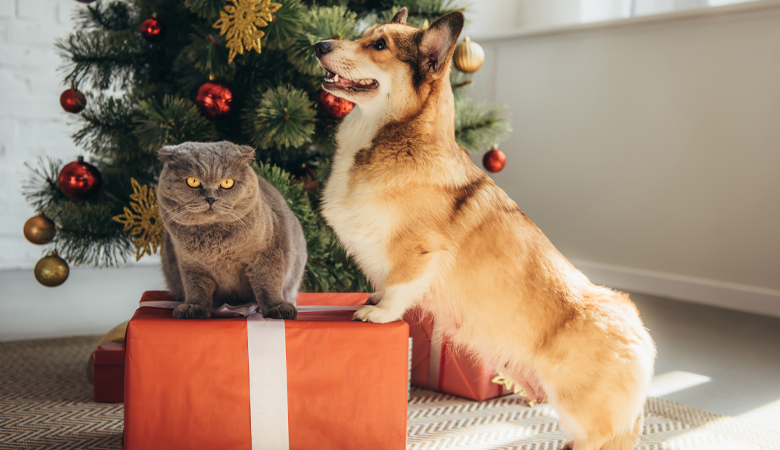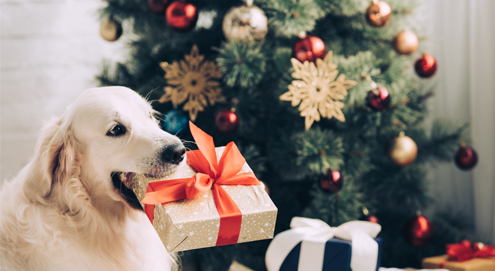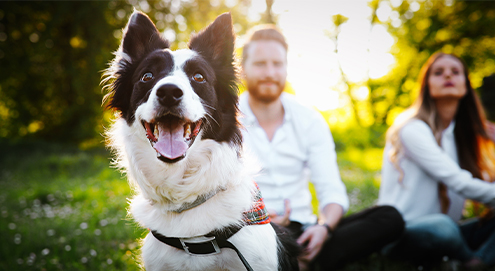Christmas Tips
Written by Rianne |
Christmas! The house is festively decorated and inside it is snug and cosy. The table is nicely set, the Christmas tree cheerfully decorated and the candles are lit. In every corner of the house you will find beautiful Christmas items and decorations. Please note: these decorations can be dangerous for your animal! Did you know, for example, that pine needles are poisonous? Make sure your animal is not allowed to eat the needles and do not place the food and drink bowl too close to the Christmas tree. More tips for a fun, enjoyable Christmas? Then read on!

The Christmas tree
Of course we all love to have a beautifully decorated Christmas tree in the house. However, did you know that pine needles are poisonous? Be careful with pine needles that fall on the ground. Make sure your pet can’t eat these needles and don’t place the food and drink bowl too close to the Christmas tree. If you have a Christmas tree that is standing in water, it also means that this water contains toxins that the tree releases. Make sure that your pet cannot drink this water. When in doubt whether you can keep an eye on all these things, an artificial tree can of course offer a solution.






